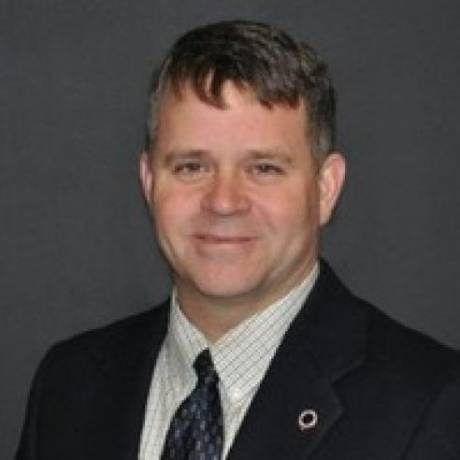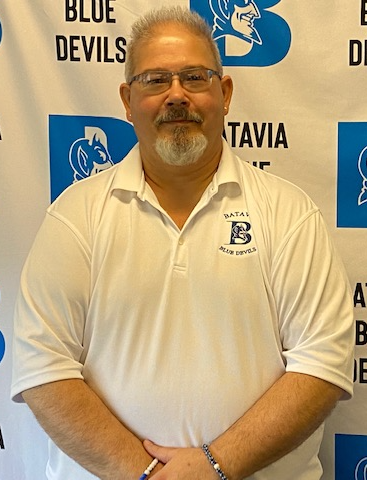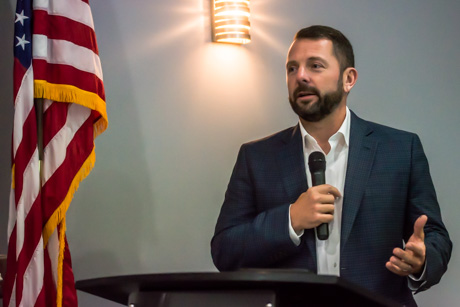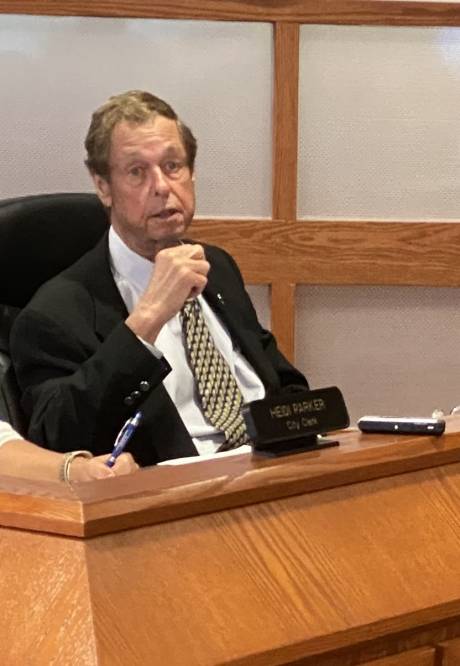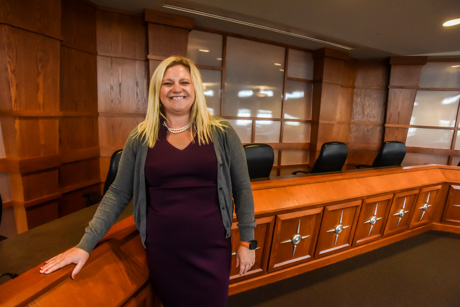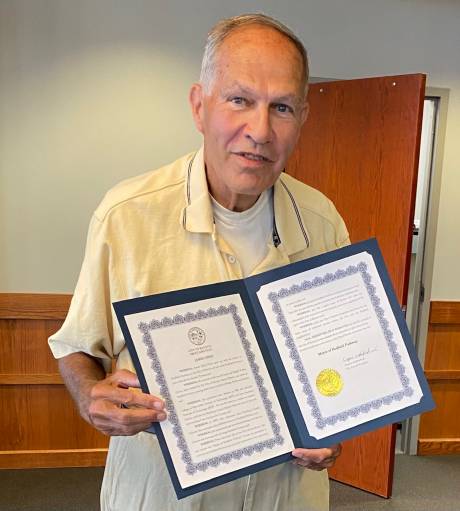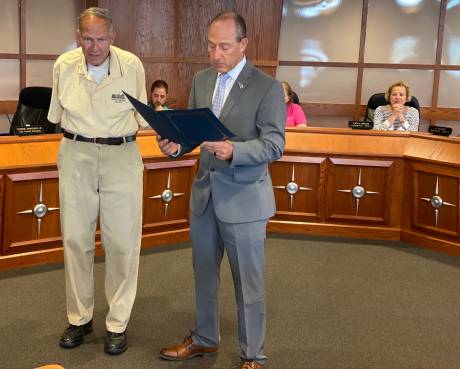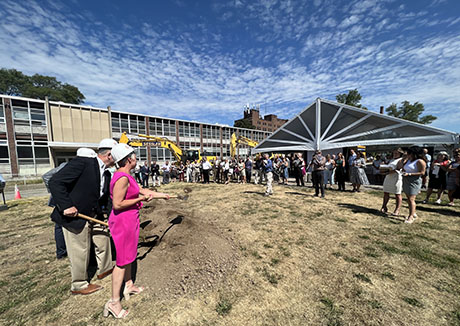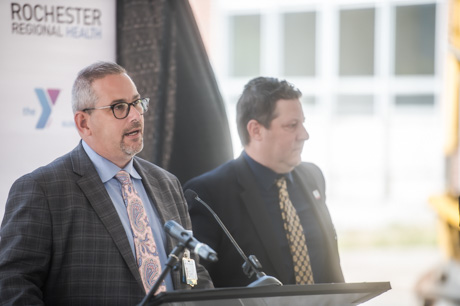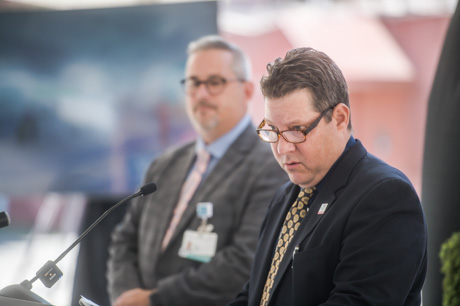Making the best of a shared situation: city officials envision a new mall

Editor's note: This is a continuation of a series about what's happening in the city of Batavia
An attractive, modern entrance; sturdy and leak-free roof; thriving retail shops alongside well-established medical practices, and an onslaught of patrons wanting to visit, shop, eat and enjoy a welcoming space.
Not exactly what many locals envision with the current City Centre. An Urban Renewal nightmare. A property that’s co-owned and managed by the city of Batavia and individual merchants. City Centre hasn’t gained a reputation in recent years as a place to enjoy. Not in the concourse, with buckets catching drips from a roof and a deadened atmosphere from vacated properties and decreased foot traffic.
But that can — and will — change, city officials say. With a fair amount of work done so far — Phase I of a roof replacement, with Phase II in the works — there’s more to be done, Public Works Director Brett Frank said.
Each of the four silos that serve as entry and exit ways into the Centre are to be redesigned. He doesn’t have a definite timeline but said the process begins with design, and once that comes back and it all gets approved, the city will go out for bid on the project. He is also making sure that the cost is within the city’s construction budget, he said.
“Basically, the design of the silos is that it’s just your entryway into the City Centre … those are supposed to be architectural features that draw people in. The design is kind of up in the air right now. If it's something that, maybe, could possibly be more in line with the redesign that's taking place with the brickwork of City Hall — the hallways, Insurance Center to Islands Hawaiian Grill,” he said during a group interview with The Batavian. “But that's all kind of up in the air. So we're not exactly sure what we will get back from engineers; I'm sure either way, it's gonna look improved from what we have now. It will make it more inviting.”
Called silos because they are cylindrical in shape and stand separated from the mall with a set of doors to trap the outdoor air, these points of entry for visitors have been less than welcoming. Buckets stationed just inside the doors, and then throughout the mall, have made for jokes rather than an impressive image.


Time for a Rewind
After years of being embroiled in litigation, both the merchants and the City of Batavia agreed to a settlement in October 2017. The city agreed to repair, maintain and pay for items within the 46,000-square-foot public concourse and the merchants agreed to pay a yearly property maintenance user fee to the city.
Fees are $2.06 per square foot of each merchant’s individual property, which means different totals for each merchant, depending on the size of the business. Tabelski likens it to a condo or neighborhood association fee.
Part of the city’s agreement has meant employing one full- and two part-time employees to make the necessary repairs and maintain the concourse. These city positions are paid for with the user fees, Water and Wastewater Superintendent Michael Ficarella said.
“They do anything from mopping floors to changing lightbulbs to taking care of ceiling tiles,” he said.
It may not have been what everyone wanted, but it’s now about making the best of the situation, City Manager Rachael Tabelski said.
“So the agreement, as of the effective date (Oct. 24, 2017), affecting the mall, including the development and operating agreement, and the common facilities agreement of 1987:The city shall, for purposes of mall redevelopment and repairs, retain ownership of the mall concourse … the members of the Mall Merchants Association, their guests, customers, invitees shall continue to enjoy the rights to access the mall concourse, as has been customarily provided to each merchant. The mall concourse will be open to the public at reasonable times,” Tabelski said.
“So that's kind of the obvious portions of it. And then this section of the settlement agreement is called capital improvement. The city needed to develop a scope of work and bid specification to repair and improve the existing roof silos and skylights at the mall concourse collectively called the roof repairs," she said. "In the agreement, it was noted that they would keep the merchants apprised through the development of the scope of work, provide copies of these specifications and provide the proposal to the merchants for review.”

The Here and Now
According to the agreement, roof repairs were supposed to be completed by March 31, 2021. One large roof project had to be broken into two parts so that the city could pay for and finance it. The first chunk cost more than $763,000 and Phase II will be approximately $218,000, Frank said.
“So far, it's been rooftop unit number nine, that's been the biggest one,” Frank said.
He and Ficarella promised there would be no more buckets dotting the internal mall landscape.
Pre-COVID, the city had been awarded $1 million from the Downtown Revitalization Initiative grant, and had plans to repair/replace the concourse roof, redesign and construct new silos, and paint the floor and walls, thereby improving the entire interior look of the concourse, Tabelskis said.
But after COVID and the ensuing pandemic hit, a lot happened in the construction world.
“As we had gotten into the project and COVID occurred, and these crazy construction price overages and inflation had occurred, we kind of settled to the point where we probably were only going to be able to do the first phase,” she said.
“That's how we ended up with phase two of the mall roof replacement. Because it was originally, like 2019, and then the second phase was (scheduled to be) from 2020 to 2021,” she said.
Aside from those repair expenses, it takes about $225,000 to operate the mall and concourse space, Tabelski said. That pays for anything needed, and the general fund “does not in the traditional sense have to support the mall, because we're able to operate it by using the user fees,” she said.
The concourse stage has been used for seasonal and impromptu concerts when the weather turns bad, and Batavia Players have occasionally performed or run their acting lines while standing on it, Ficarella said.
The stage still is still useful, he said, as a concert venue during inclement weather, Christmas in the City, and other prospective special events.
Funding for the first phase is from a funding reserve, and about $120,000 is being taken from that $1 million for the silo design process. The remaining money will go for actually redesigning those silos. The city also has received a National Grid Urban Corridor Grant to help with economic development projects in the city, Tabelski said.
“We can apply some of those funds to the project as long as we're doing exterior work, and improving what we call the kind of the urban corridor of a City Centre as well. The budget was going to go a lot further four years ago, when the grant was awarded. But as we got into COVID, and changes in leadership at the city, we're finally getting back to getting the project moving. It's just the season we live in now that the money's not going to go as far as it used to.”
That doesn’t mean that an interior facelift can’t happen, she said, as “there's definitely the ability to start to look at budgeting for flooring and painting improvements.”
Moving Forward
There have certainly been the naysayers suggesting that the mall just be torn down. So how do city officials get people excited about a structure described as wasteful, an eyesore and dead?
Perhaps some perspective steeped in reality would help. The mall has a Merchants Association with individual property owners who run their businesses, medical practices and personal services out of that space. The city has no claim to those properties and therefore cannot just go in and tear it all down.
Tabelski also wants to remind folks that these are viable businesses that have invested money, time and effort into their mall properties. At one time, several years ago, there was talk of slicing off a portion of the mall and restructuring some of that building. That was then, this is now, Tabelski said.
“I would say those are definitely plans that are out there. But because of the nature of the condo-ized situation at the mall right now, the city's trying to make the best use of the property we have, and bring people down to this corridor and work with what we have,” she said. “So the taking down any portions of the mall is not on the table right now.”
Up next: Moving Forward, continued
Go here for prior coverage about the city and mall settlement
Photo of mall silo in Batavia; Valentine-themed buckets in 2020. Photos by Howard Owens. Dare to dream? These front entrances of Gemdale Plaza and Castle Mall are showy with lots of light and windows. Photos of "Mall Entries" by Sruthy Sukumaran.





